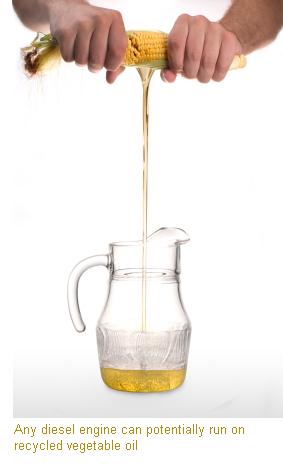The environmental arguments surrounding the use of biofuel have reignited ahead of Government plans to increase the proportion of biofuels in petrol to 10 per cent. The move will increase prices at the pump, carbon emissions and the strain on people in developing world who are forced off land as biofuel crops compete with food crops according to research by ActionAid and Friends of the Earth.
The research undertaken by the Global Subsidies Initiative reveals that rather than cutting greenhouse gas emissions most biofuels increase them.
The charities would rather see investment invest in alternatives to biofuels such as public transport, fuel efficient cars and cycling.
Under the EU’s Renewable Energy Directive, 10% of transport fuels used in the EU must come from renewable sources by 2020.
Second generation biofuel
 A distinction must be drawn between first-generation biofuels, which use food crops such as corn, rapeseed, palm and soya, and the currently experimental second-generation fuels based on fibrous non-food plants which could be grown without displacing other crops and raising food prices.
A distinction must be drawn between first-generation biofuels, which use food crops such as corn, rapeseed, palm and soya, and the currently experimental second-generation fuels based on fibrous non-food plants which could be grown without displacing other crops and raising food prices.
A spokesperson for the Environmental Transport Association (ETA) said: “The demand on natural resources from of biofuel-powered aircraft will be immense, so it is vital that the true environmental impact is calculated with great care.”
The industry responsible for producing biofuel from recycled cooking oil, a waste product that would otherwise go to land fill or clog up drains, will suffer a blow at the end of next month when the Government will abolish a 20p tax break for biodiesel made in this way.
According to the Save Our Sustainable Biodiesel campaign: ‘More virgin crops will be used to produce biodiesel; the price of used cooking oil biodiesel will rise, forcing current biodiesel users to revert to the use of fossil fuels; and the resulting drop in demand will force producers to close, causing significant job losses.’
It is possible to process your own biodiesel at home. A device called the ‘FuelPod 2’ turns used cooking oil into biofuel that can be used in many diesel-engine vehicles. It is the size of a small fridge and is capable of producing up to 50 litres of biodiesel every day. Its fuel dispensing system lets you pump the finished fuel straight into your car. There is no fuel duty to pay on the first 2,500 litres of biofuel produced in this way.
0 Comments View now